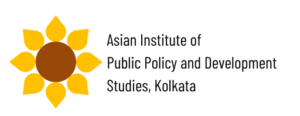Prof Gautam Ray
 Gautam Ray is currently a professor in the Faculty of Economics and Business and in the International Academic Research Institute at Kyoto University of Advanced Science, Kyoto, Japan. He is the founder Vice-President, AIPPDS, Kolkata. His educational background extends across multiple fields. He holds M.A. and Ph.D degrees of Boston University, USA, in economics and economic geography; LL.B. of Delhi University; M.Sc. of Calcutta University in chemistry; and B.Sc. (Honours) of Presidency University (then College), Calcutta, in chemistry.
Gautam Ray is currently a professor in the Faculty of Economics and Business and in the International Academic Research Institute at Kyoto University of Advanced Science, Kyoto, Japan. He is the founder Vice-President, AIPPDS, Kolkata. His educational background extends across multiple fields. He holds M.A. and Ph.D degrees of Boston University, USA, in economics and economic geography; LL.B. of Delhi University; M.Sc. of Calcutta University in chemistry; and B.Sc. (Honours) of Presidency University (then College), Calcutta, in chemistry.
He entered Indian Revenue Service in 1979 and held important positions in government of India including Chief Commissioner of Customs and Indirect Taxes in charge of the central tax administration in the states of West Bengal, Sikkim, Punjab, Himachal Pradesh, Jammu and Kashmir, and the UTs of Chandigarh and Andaman &Nicobar Islands; Additional Director-General, Centre of Excellence, Ministry of Finance, Government of India, New Delhi; Commissioner of Customs, Kolkata; Director, Ministry of Finance, Government of India; Deputy Secretary, Ministry of Welfare, Government of India and Under Secretary, Ministry of Finance, Government of India.
Before his current position, Dr. Ray had held several academic and research positions in USA, Japan and India. These include: Professor, Graduate School of Management, Kyoto University, Japan, 2009-2014 and 2015-2022; Fellow, Center for Transportation Studies, Boston University, 2003-2004; Lecturer, Boston University School of Management, Boston, 2001-2003; Fellow, World Bank, Washington DC, 1995-1997; Visiting Professor, School of Civil Engineering, Kyoto University, 1999; and Secretary, High Powered Tax Reforms Committee, 1991-1993. In September 1993, he was selected a member in the panel of fiscal experts of the Fiscal Affairs Division, International Monetary Fund, Washington DC.
Professor Ray published widely in peer reviewed journals and reference books in several disciplines. His publications include: “Increasing Returns to Scale Inherent in Affluent Knowledge-Rich Economies: A Theoretical Inquiry” Growth and Change,32(4): 491-510, Blackwell Publishers, Malden, Massachusetts; “Scientific-spirituality as Envisaged by Swami Vivekananda”, Bulletin of the Ramakrishna Mission Institute of Culture, Vol.LXXIV, No.7, Gol Park, Kolkata, pp.26-28,38; “Doing Business in Rising India: Opportunities and Challenges” Journal of Marketing Development and Competitiveness 5(4):pp.77-95, North American Business Press, Atlanta, USA; “Endogenous Growth and Regional Development: A New Modeling Approach”, in Kobayashi Kiyoshi et.al.(Eds), “Structural Change in the Transportation and Communication in the Knowledge Society”, Edward Elgar, Cheltenham, UK, Northampton, MA,USA; “Foundations of Collective Action: Towards a General Theory” in Hans Weslund and Kiyoshi Kobayashi(eds.) Social Capital and Rural Development in the knowledge Society Edward Elgar, Cheltenham, UK and Northampton, MA, USA; “Modeling Transportation in General Equilibrium” in Kakuya Matsushima and William P. Anderson (eds) Transportation, Knowledge and Space in Urban and Regional Economics, Edward Elgar, Cheltenham, UK and Northampton, MA, USA; ASEAN-India Economic Partnership for Growth and Inclusive Development in the Region”, in Kobayashi Kiyoshi et.al. (eds) Economic Integration and Regional Development: The ASEAN Economic Community, Routledge, London and New York; “Foreign Equity Investments in India: Trends, Policy Priorities and ‘Legitimacy’ Perspective” in Kobayashi et.al. (eds) Joint Ventures in Construction 2; contract, governance, performance and risk, Thomas Telford, London. He published in 2009 four articles in the Economic Times, New Delhi: “Reforming School Education”; “Free Trade Agreements under Goods and Services Tax”; “Inter-State Goods and Services Tax”; and “How to curb VAT/GST evasion”.
In Kyoto University, Professor Ray taught two courses: Development Theory and Policy Perspectives; and Supply Chain Management. In his current position at the Kyoto University of Advanced Science, he has been engaged in research and teaching covering two areas: Inclusive and Sustainable Development of Human Societies; and Hindu Spirituality and Indian Culture.

